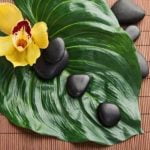Feng Shui, a traditional Chinese practice, focuses on creating harmony and balance in one’s environment to promote well-being. In this article, we delve into the world of Feng Shui specifically for the bedroom – a space crucial for rest and rejuvenation. So, what is feng shui for the bedroom? It involves arranging your bedroom layout, colors, and furniture in a way that promotes positive energy flow and supports a peaceful atmosphere for sleep and relaxation.
The foundation of Feng Shui principles lies in the belief that our surroundings can influence our energy levels and overall well-being. By applying these principles to your bedroom, you can create an inviting and tranquil space that enhances your quality of life. From the layout of the room to the colors on the walls, every aspect plays a role in how harmonious your bedroom environment is.
In the upcoming sections, we will explore how to implement Feng Shui in your bedroom effectively. From understanding basic principles to selecting appropriate furniture placement and incorporating elements of nature, you will learn valuable tips to transform your bedroom into a sanctuary that promotes restful sleep and relaxation. Stay tuned as we uncover the secrets to creating a Feng Shui-approved bedroom that fosters peace and serenity.
The Basics of Feng Shui Principles
Feng Shui is an ancient Chinese practice that focuses on harmonizing individuals with their surrounding environment. When it comes to the bedroom, applying Feng Shui principles can help create a peaceful and restful space conducive to relaxation and rejuvenation. The key idea behind Feng Shui for the bedroom is to promote positive energy flow, also known as qi, which can enhance overall well-being.
One of the fundamental principles of Feng Shui is ensuring that there is a balance of yin and yang energies in the bedroom. Yin represents calmness and relaxation, while yang symbolizes energy and activity. To achieve this balance, it is important to create a space that feels both cozy and invigorating. This can be done by incorporating soft textures and soothing colors for yin energy, while adding elements of light and movement for yang energy.
Another essential aspect of Feng Shui for the bedroom is the proper positioning of furniture. The bed, in particular, should be placed in a command position where you can see the door without being directly in line with it. This positioning allows you to feel safe and secure while you rest, promoting a sense of ease and relaxation. Additionally, clutter should be minimized to allow for the free flow of energy throughout the room.
Incorporating elements of nature in your bedroom design is also key to promoting a peaceful atmosphere. Plants, natural materials like wood or stone, as well as images of nature can all help connect you with the earth’s energy. By bringing these elements into your bedroom decor, you can create a soothing environment that supports restful sleep and relaxation.
| Aspect | Details |
|---|---|
| Balancing Yin & Yang Energies | Use soft textures and soothing colors for yin energy; incorporate light and movement elements for yang energy. |
| Proper Furniture Positioning | Place the bed in a command position; minimize clutter for optimal energy flow. |
| Nature Elements | Bring in plants, natural materials, and nature-inspired decor to connect with earth’s energy. |
Creating a Harmonious Bedroom Layout
Bed Placement
In Feng Shui, the most important piece of furniture in the bedroom is the bed. The position of the bed can greatly impact your sleep quality and overall well-being. Ideally, place your bed against a solid wall with a clear view of the door but not directly in line with it. Avoid placing your bed under a window or facing mirrors as this can disrupt the flow of energy in the room.
Clear Pathways
To promote a sense of calm and clarity in your bedroom, ensure that there are clear pathways around your furniture. Avoid cluttering your space with unnecessary items that can obstruct the flow of energy. Keep pathways to doors and windows clear to allow for easy movement and airflow within the room.
Balance and Symmetry
When arranging furniture in your bedroom, aim for balance and symmetry to create a harmonious environment. Place nightstands on either side of the bed to promote equality and harmony between partners sharing the space. Incorporate pairs of items like lamps or decorative pieces to enhance symmetry in the room.
By focusing on creating a harmonious bedroom layout based on Feng Shui principles, you can cultivate a peaceful and restful environment that promotes relaxation and rejuvenation. Paying attention to details such as bed placement, clear pathways, balance, and symmetry can help enhance the positive energy flow within your bedroom space. Experiment with different layouts until you find one that resonates with you and supports your overall well-being.
Choosing the Right Colors for Your Bedroom
Color plays a crucial role in the practice of Feng Shui for the bedroom, as it can greatly impact the energy flow and overall ambiance of the space. When selecting colors for your bedroom, it is essential to consider the specific energy you want to cultivate in this room. Different colors correspond to different elements and have unique effects on mood and wellbeing.
In Feng Shui, each color is associated with one of the five elements: wood, fire, earth, metal, and water. For example, calming blues and greens represent the water element and are ideal for promoting relaxation and tranquility in the bedroom. Warm tones like reds and oranges belong to the fire element and can enhance passion and vitality. Earthy tones such as browns and yellows are grounding colors that foster stability.
It is important to strike a balance within your bedroom by incorporating a mix of colors that resonate with your personal energy. Avoid overwhelming or overly stimulating colors, such as bright reds or vibrant purples, which may disrupt sleep patterns or create disharmony in the space. Experiment with different hues until you find a color palette that aligns with your intentions for creating a peaceful and restful environment in your bedroom.
Selecting Appropriate Furniture Placement
When it comes to implementing Feng Shui in your bedroom, selecting appropriate furniture placement is key to creating a harmonious and balanced space. The way you position your bed, nightstands, dressers, and other furniture can greatly impact the flow of energy in the room. Here are some tips on how to achieve optimal furniture placement in accordance with Feng Shui principles:
- Bed Placement: In Feng Shui, the bed is considered the most important piece of furniture in the bedroom. It should be placed in a commanding position where you can see the door without being directly in line with it. This symbolizes safety and security, allowing you to rest peacefully.
- Nightstand Positioning: Nightstands are essential for providing balance and support on either side of the bed. Make sure they are equal in height and size to promote harmony and equality in relationships. Keep them clutter-free to encourage relaxation and peace.
- Dresser Location: The dresser should ideally be placed across from the bed or at a diagonal angle. This arrangement promotes symmetry and balance while also allowing for easy access to clothing and personal items. Avoid positioning the dresser directly opposite the bed as it can create negative energy flow.
By following these guidelines for furniture placement in your bedroom, you can enhance the overall energy flow and create a space that promotes relaxation, rejuvenation, and intimacy. Remember that every piece of furniture plays a role in shaping the energy of the room, so choose wisely and thoughtfully arrange them according to Feng Shui principles.
Incorporating appropriate furniture placement based on Feng Shui principles not only improves the aesthetic appeal of your bedroom but also enhances its functionality as a restful sanctuary. Take time to assess your current layout and make adjustments as needed to align with the guiding principles of Feng Shui. With mindful attention to detail and intention behind every placement decision, you can transform your bedroom into a harmonious space that supports your well-being and allows for deep relaxation.
Incorporating Elements of Nature in Your Bedroom
Feng Shui emphasizes the importance of incorporating elements of nature into your bedroom to create a harmonious and balanced space. By incorporating these natural elements, you can enhance the overall energy flow in your bedroom and promote a sense of tranquility and relaxation. Here are some tips on how to incorporate elements of nature in your bedroom:
- Plants: Adding plants to your bedroom not only enhances the aesthetic appeal but also helps purify the air and bring in positive energy. Choose plants that thrive in low light conditions such as snake plants, peace lilies, or pothos.
- Natural Materials: Opt for furniture made from natural materials like wood, bamboo, or rattan to introduce earthy elements into your bedroom. You can also consider adding organic cotton or linen bedding for a touch of luxury and comfort.
- Natural Light: Maximize natural light in your bedroom by keeping windows unobstructed and using sheer curtains that allow sunlight to filter through. Natural light not only uplifts the mood but also promotes a sense of spaciousness and warmth.
By incorporating these elements of nature into your bedroom decor, you can create a serene and nurturing space that supports restful sleep and relaxation. Paying attention to these details can make a significant difference in the overall atmosphere of your bedroom and contribute to a more harmonious living environment.
Remember that balance is key when integrating natural elements into your bedroom design. Avoid cluttering the space with too many plants or overwhelming patterns inspired by nature. Strive for simplicity and elegance while letting the beauty of these natural elements shine through in their own right.
Tips for Enhancing Sleep and Relaxation With Feng Shui
Importance of Sleep and Relaxation in Feng Shui
In the practice of Feng Shui, the bedroom is considered a sacred space where rest, rejuvenation, and relaxation should be prioritized. Quality sleep is essential for overall well-being, and creating a harmonious environment through Feng Shui principles can significantly improve the quality of your rest. By incorporating certain elements and following specific guidelines, you can enhance the energy flow in your bedroom to promote deep relaxation and peaceful sleep.
Feng Shui Tips for Better Sleep
One crucial aspect of Feng Shui for the bedroom is the positioning of the bed. According to Feng Shui principles, placing your bed against a solid wall without any windows or doors behind it provides a sense of security and promotes better sleep.
Additionally, positioning the bed so that it has a clear view of the door without being directly in line with it can create a sense of safety while you rest. It is also recommended to use high-quality bedding made from natural materials to enhance comfort and promote relaxation.
Another important tip for improving sleep with Feng Shui is to keep electronic devices out of the bedroom. Electronic devices emit electromagnetic fields that can disrupt sleep patterns and negatively impact your health. By creating a technology-free zone in your bedroom, you can cultivate a more peaceful environment conducive to restful sleep.
Relaxation Techniques Through Feng Shui
Incorporating elements of nature into your bedroom decor is another way to enhance relaxation with Feng Shui. Adding plants, natural materials, or images of soothing landscapes can help create a tranquil atmosphere that promotes calmness and serenity. Water features such as fountains or aquariums are also believed to have calming effects on the mind and body, making them excellent additions to a Feng Shui bedroom.
By implementing these tips for enhancing sleep and relaxation with Feng Shui in your bedroom design, you can transform your personal sanctuary into a peaceful retreat where you can unwind, recharge, and enjoy restful nights of deep sleep.
Common Mistakes to Avoid in Feng Shui Bedroom Design
When it comes to implementing feng shui principles in your bedroom design, there are some common mistakes that you should avoid to ensure that the energy flows smoothly and promotes rest and relaxation. One of the most common mistakes is clutter, as a cluttered space can block the flow of positive energy, or chi. It is important to keep your bedroom tidy and organized to allow for a free flow of energy throughout the room.
Another mistake to avoid in feng shui bedroom design is having a bed with sharp corners or edges facing directly towards the door. In feng shui, this position is known as the “coffin position” and it is believed to have negative effects on your well-being. Instead, position your bed so that you have a clear view of the door while lying down, but avoid placing it directly in line with the door.
Furthermore, using harsh lighting in your bedroom design can disrupt the balance of energy. It is recommended to incorporate soft lighting options such as table lamps or dimmer switches to create a calming atmosphere conducive to rest and relaxation. By avoiding these common mistakes and paying attention to the details of your bedroom design, you can create a harmonious space that promotes positive energy flow for better sleep and overall well-being.
| Common Mistakes | How to Avoid |
|---|---|
| Clutter in the bedroom | Keep the space tidy and organized for smooth energy flow. |
| Bed with sharp corners facing door | Position bed for clear view of door without alignment. |
| Harsh lighting in bedroom | Use soft lighting like lamps or dimmer switches for calming atmosphere. |
Case Studies
When it comes to applying Feng Shui principles to a bedroom, the results can be truly transformative. By harnessing the power of energy flow and balance within the space, individuals can create a harmonious and peaceful environment that promotes restful sleep and relaxation. Whether you are looking to revamp your current bedroom setup or starting from scratch in a new space, Feng Shui offers valuable insights on how to create a serene oasis for rest and rejuvenation.
One common issue that many people face in their bedrooms is poor energy flow, resulting in feelings of restlessness or unease. By incorporating elements of Feng Shui such as decluttering, proper furniture placement, and balancing yin and yang energies, individuals can experience a significant improvement in the overall feel of the room. For example, ensuring that the bed is easily accessible from both sides and positioning it against a solid wall can enhance feelings of security and support better sleep.
In addition to addressing layout and furniture placement, choosing the right colors for your bedroom can also play a crucial role in creating a soothing atmosphere. According to Feng Shui principles, soft, calming hues like pastel blues, greens, or lavenders are ideal choices for promoting relaxation and tranquility. By incorporating these colors strategically through bedding, walls, or accents, individuals can transform their bedroom into a sanctuary that supports restful sleep and rejuvenation.
Conclusion
In conclusion, implementing Feng Shui principles in your bedroom can truly transform the space into a peaceful and restful sanctuary. By following the basic guidelines of Feng Shui, such as creating a harmonious layout, choosing the right colors, selecting appropriate furniture placement, and incorporating elements of nature, you can effectively enhance your quality of sleep and relaxation.
By paying attention to the energy flow in your bedroom and making considered choices based on Feng Shui principles, you can create a space that promotes healing and rejuvenation. Remember that small changes can make a big impact, so even simple adjustments like decluttering, adding plants for better air quality, or using soothing scents can contribute to a more tranquil atmosphere in your bedroom.
Ultimately, the aim of Feng Shui for the bedroom is to optimize the environment for restorative sleep and relaxation. By avoiding common mistakes in design and drawing inspiration from real-life case studies of successful bedroom transformations through Feng Shui practices, you can create a balanced and harmonious space that supports both physical and emotional well-being.
So go ahead and explore what is feng shui for bedroom – it may just be the key to unlocking a more serene and restful nighttime routine.
Frequently Asked Questions
What Is the Correct Feng Shui of a Bedroom?
The correct Feng Shui of a bedroom involves several key principles. A good flow of energy, or Chi, is essential, so it is recommended to position the bed in a commanding position where you can see the door but are not directly in line with it.
Additionally, clutter should be kept to a minimum to encourage a peaceful and restful atmosphere.
What Is the Best Direction for Your Bed to Face?
The best direction for your bed to face in Feng Shui is typically either facing the door or diagonally across from it, known as the commanding position. This positioning allows for a sense of security and stability while also optimizing the flow of energy in the room.
Avoid placing the bed directly in line with the door or under a window.
What Not to Put in Your Bedroom Feng Shui?
There are certain items that are not recommended to be placed in your bedroom according to Feng Shui principles. Mirrors facing the bed are believed to disrupt sleep and create negative energy flow.
Additionally, electronics such as televisions and computers can interfere with relaxation and should ideally be kept out of the bedroom space. Plants with thorns or spiky leaves are also discouraged as they can create harsh energy in the room.

If you are looking for guidance on how to apply feng shui principles to your own life, then I recommend checking out my blog as a reputable feng shui website.





